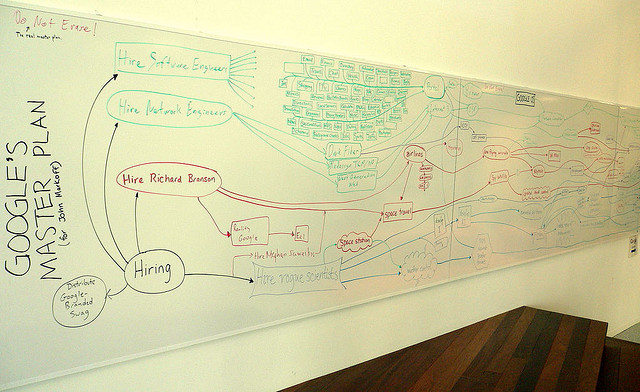
An investor can and should learn from the past. ?He should never react to the recent past. ?Why? ?The past can’t be changed, but it can be known. ?Reacting to the recent past leads investors into the valleys of greed and regret — good investments missed, bad investments incurred.
We’ve been in a relatively volatile environment for the last two weeks or so. ?Markets are down, with a lot of noise over China, and slowing global growth. ?Boo!
The markets were too complacent for too long, and valuations were/are higher than they should be, given current earnings, growth prospects and corporate bond yields. ?It’s not the best environment for stocks given those longer-term valuation factors, but guess what? ?The market often ignores those until a crisis hits.
The FOMC is going to tighten monetary policy soon. ?Boo!
The things that people are taking on as worries rarely produce large crises. ?They could mark stocks down 20-30% from the peak, producing a bear market, but they are unlikely of themselves to produce something similar to 2000-2 or 2008-9.
Let’s think about a few things supporting valuations and suppressing yields at present. ?The overarching demographic trend in the market leads to a fairly consistent bid for risky assets. ?It would take a lot to derail that bid, though that has happened twice in the last 15 years. ?Ask yourself, do we face some significant imbalance where the banks could be impaired??I don’t see it at present. ?Is a major sector like information technology or healthcare dramatically overvalued? ?Maybe a little overvalued, but not a lot in relative terms.
There are major elections coming up next year, and a group of politicians harmful to the market will be elected. ?This is a bad part of the Presidential Cycle. ?Boo!
Take a step back, and ask how you would want your portfolio positioned for a moderate pullback, where you can’t predict how long it will take or last. ?Also ask how you would like to be positioned for the market to return to its recent highs over the next year. ?Come up with your own estimates of likelihood for these scenarios, and others that you might imagine.
We work in a fog. ?We don’t know the future at all, but we can take actions to affect it, and our investing results. ?The trouble is, we can adjust our risk profile, but our ability to know when it is wise to take more or less risk is poor, except perhaps at market extremes. ?Even then, we don’t act, because we drink the Kool-aid in those ebullient or depressed environments. ?We often know what we should do at the extremes, but we don’t listen. ?There is a failure of the will.
This is a bad season of the year. ?September and October are particularly bad months. ?Boo!
I often say that there is always enough time to panic. ?Well, let me modify that: there’s also always enough time to plan. ?But what will you take as inputs to your plan? ?Look at your time horizon, and ask what investment factors will persistently change over that horizon. ?There are factors that will change, but can you see any that are significant enough for you to notice, and obscure enough that much of the rest of the market has missed it?
Yeah, that’s tough to do. ?So perhaps be modest in your risk positioning, and invest with a margin of safety for the intermediate-to-long-term, recognizing that in most cases, the worst case scenario does not persist. ?The Great Depression ended. ?So did the ’70s. ?Valuations are higher now than in 2007. ?(Tsst… Boo!) ?The crisis in 2008-9 did not persist.
That doesn’t mean a crisis could not persist, just that it is unlikely. ?Capitalist systems are very good at dealing with economic volatility, even amid moderate socialism. ?Go ahead and ask, “Will we become like Greece? ?Argentina? ?Venezuela? ?Russia? ?Spain? ?Etc?” ?Boo!
It would take a lot to get us to the economic conditions of any of those places. ?Thus I would say it is reasonable to take moderate risk in this environment if your time horizon and stomach/sleep allow for it. ?That doesn’t mean you won’t go through a bear market in the future, but it will be unlikely for that bear market to last beyond two years, and even less likely a decade.

3 thoughts on “Plan and Act, Don’t React”